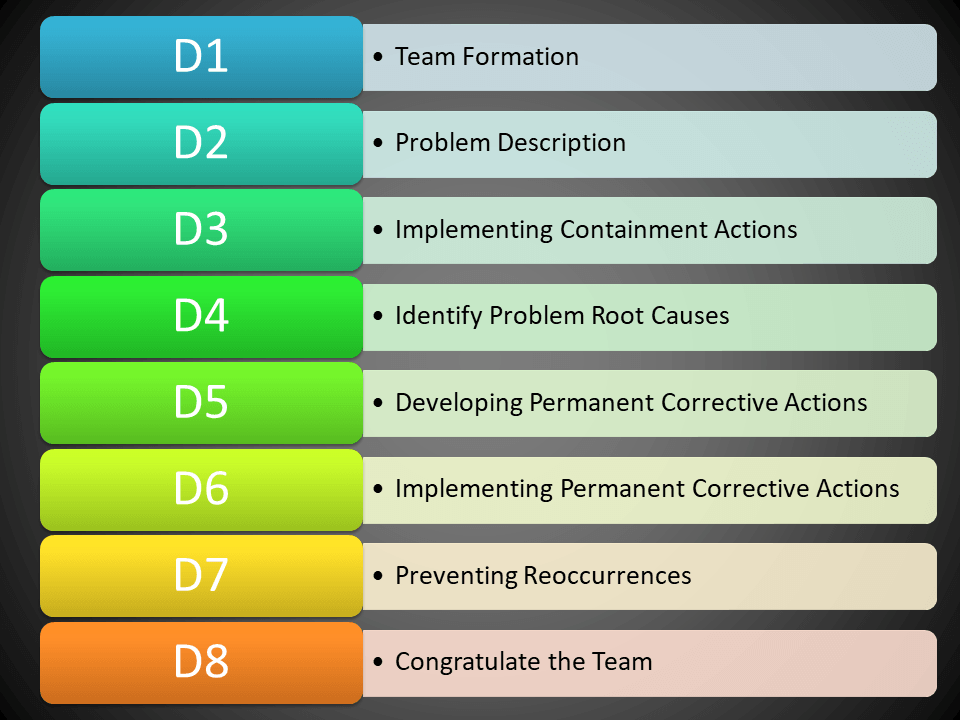Eight Disciplines (8D)
8D – The 8 disciplines of problem solving – 8 steps to solve difficult, recurring or critical problems.

The eight disciplines (8D) model is a problem solving approach. The purpose of the 8D methodology is to identify, correct, and eliminate recurring problems, making it useful in product and process improvement.
The 8D problem solving model establishes a permanent corrective action based on statistical analysis of the problem and focuses on the origin of the problem by determining its root causes. Although it originally comprised eight stages, or disciplines, the eight disciplines system was later augmented by an initial planning stage.
- D0: Plan – Plan for solving the problem and determine the prerequisites.
- D1: Use a team – Select and establish a team of people with product/process knowledge.
- D2: Define and describe the problem – Specify the problem by identifying in quantifiable terms the who, what, where, when, why, how, and how many (5W2H) for the problem.
- D3: Develop interim containment plan; implement and verify interim actions – Define and implement containment actions to isolate the problem from any customer.
- D4: Determine, identify, and verify root causes and escape points – Identify all applicable causes that could explain why the problem occurred. Also identify why the problem was not noticed at the time it occurred. All causes shall be verified or proved, not determined by fuzzy brainstorming. One can use 5 Whys and cause and effect diagrams to map causes against the effect or problem identified.
- D5: Choose and verify permanent corrections (PCs) for problem/nonconformity – Through preproduction programs, quantitatively confirm that the selected correction will resolve the problem for the customer.
- D6: Implement and validate corrective actions – Define and implement the best corrective actions (CA).
- D7: Take preventive measures – Modify the management systems, operation systems, practices, and procedures to prevent recurrence of this and all similar problems.
- D8: Congratulate your team – Recognize the collective efforts of the team. The team needs to be formally thanked by the organization.
